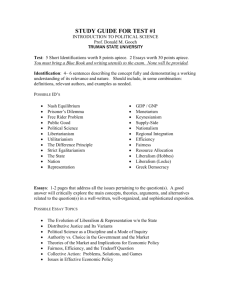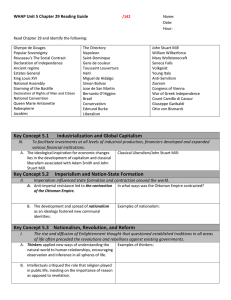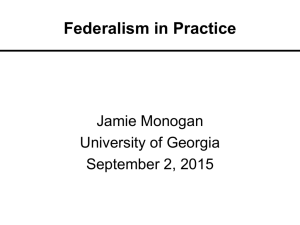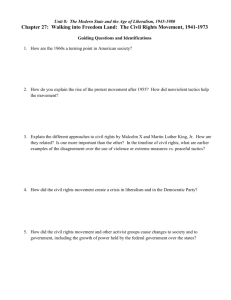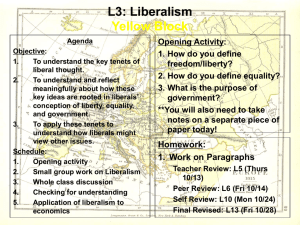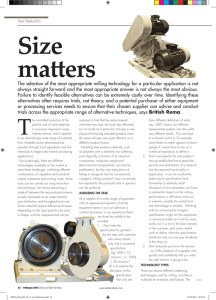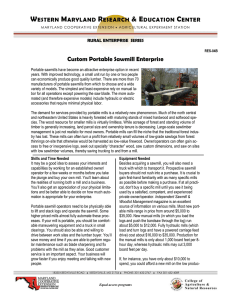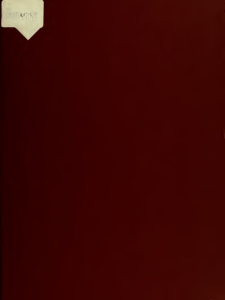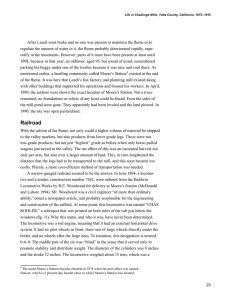The Empire*s coming home: Liberalism, Exclusion and the
advertisement
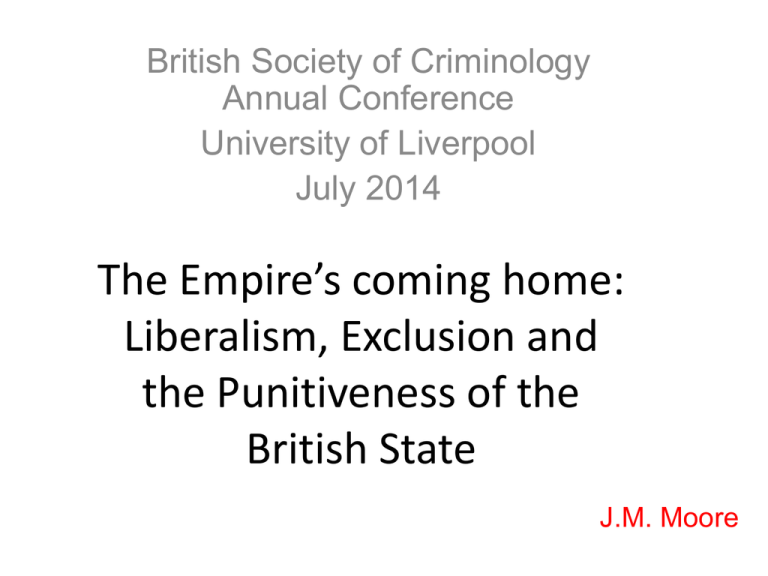
British Society of Criminology Annual Conference University of Liverpool July 2014 The Empire’s coming home: Liberalism, Exclusion and the Punitiveness of the British State J.M. Moore The “New Punitiveness” • Increased Imprisonment – More people – For longer • Increased surveillance and supervision • Reduced tolerance • Targeting of working class and black and minority ethnic communities • Criminal Justice -v- Welfare Solutions Histories of Punishment • Civilising • From Physical to Carceal – ‘Instead of losing a hand, imprisonment for ten years’. (Christie 2000:46) • Alternatives to imprisonment • Decline of the prison • Rise of Welfare The Lost Empire: Colonial Omissions from Penal Histories • • • • • Mutiny and brutal repression Criminal Tribes Act Godna, fingerprinting and bertilage Prison and Slavery Further Mutiny and more brutal repression • Genocide, torture, rape, concentration camps Mills Liberalism: ‘Inclusionary discipline’ I regard it as required by first principles, that the receipt of parish relief should be a peremptory disqualification for the franchise. (Mill 1997b:472) If it is asserted that all persons ought to be equal in every description of right recognised by society, I answer, not until all are equal in worth as human beings……a person who cannot read, is not as good, for the purpose of human life, as one who can. (Mill 1997c:323) Mills Liberalism: the homogeneous race “Among a people without fellowfeeling, especially if they read and speak different languages, the united public opinion, necessary to the workings of representative government, cannot exist” Mill 1977b:547 Mills Liberalism: ‘exclusionary exceptions’ “Despotism is a legitimate mode of government in dealing with Barbarians, providing the end be their improvement, and the means justified by actually effecting that end.” Mill 1977a:224 • From – criminality and crime control, – rights and responsibilities, – inclusion and exclusion, • To – race, – terror, – religion, – culture – and immigration
